Related Research Articles
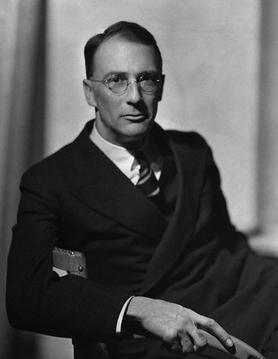
Cecil Louis Troughton Smith, known by his pen name Cecil Scott "C. S." Forester, was an English novelist known for writing tales of naval warfare, such as the 12-book Horatio Hornblower series depicting a Royal Navy officer during the Napoleonic Wars.

Master and Commander is a nautical historical novel by the English author Patrick O'Brian, first published in 1969 in the US and 1970 in the UK. The book proved to be the start of the 20-novel Aubrey–Maturin series, set largely in the era of the Napoleonic Wars, on which O'Brian continued working until his death in 2000.
Horatio Hornblower is a fictional officer in the British Royal Navy during the Napoleonic Wars, the protagonist of a series of novels and stories by C. S. Forester. He later became the subject of films and radio and television programmes, and C. Northcote Parkinson elaborated a "biography" of him, The True Story of Horatio Hornblower.

The Happy Return is the first of the Horatio Hornblower novels by C. S. Forester. It was published in 1937. The American title is derived from the expression "beat to quarters", which was the signal to prepare for combat. This book is sixth by internal chronology of the series. Hornblower's past history as described here does not entirely accord with his history as revealed in the stories written later, but Forester never revised the book.

Admiral Edward Pellew, 1st Viscount Exmouth, GCB was a British naval officer. He fought during the American War of Independence, the French Revolutionary Wars, and the Napoleonic Wars. His younger brother Israel Pellew also pursued a naval career.

Mr. Midshipman Hornblower is a 1950 Horatio Hornblower novel written by C. S. Forester. Although it may be considered as the first episode in the Hornblower saga, it was written as a prequel; the first Hornblower novel, The Happy Return, was published in 1937.
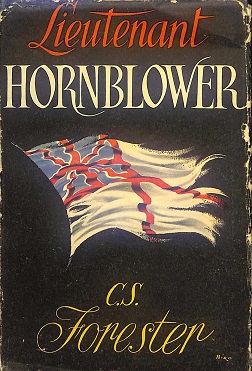
Lieutenant Hornblower is a Horatio Hornblower novel written by C. S. Forester. It is the second book in the series chronologically, but the seventh by order of publication.
The Even Chance is the first of eight Hornblower television adaptations relating the exploits of Horatio Hornblower, the protagonist in a series of novels and short stories by C.S. Forester. The Even Chance is the name given to the film in the United Kingdom, while in the United States it is known by the alternative title The Duel.
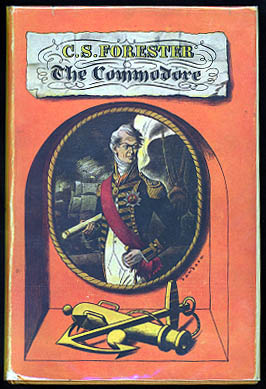
The Commodore is a Horatio Hornblower novel written by C. S. Forester. It was published in the United States under the title Commodore Hornblower.
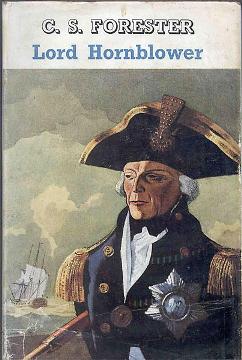
Lord Hornblower is a Horatio Hornblower novel written by C. S. Forester, originally intended to be the last in the series.

Hornblower in the West Indies, or alternately Admiral Hornblower in the West Indies, is one of the novels in the series that C. S. Forester wrote about fictional Royal Navy officer Horatio Hornblower.
The Examination for Lieutenant is an episode of the British television series Hornblower. It is loosely based on part of the 1950 novel Mr. Midshipman Hornblower by C. S. Forester. It was released on DVD in the United States under the title The Fire Ship.
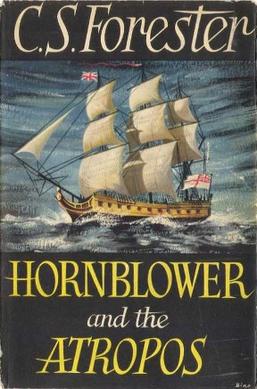
Hornblower and the Atropos is a 1953 historical novel by C.S. Forester.
"Hornblower and the Widow McCool" is a short story by C. S. Forester featuring his fictional naval hero Horatio Hornblower. It was first published in the 9 December 1950 issue of The Saturday Evening Post as "Hornblower's Temptation" and then in the UK in the April 1951 Argosy as "Hornblower and the Big Decision." It was published as "Hornblower and the Widow McCool" along with the unfinished novel Hornblower and the Crisis and the short story "The Last Encounter" in 1967, after Forester's death. The story is set after Mr. Midshipman Hornblower and before Lieutenant Hornblower.
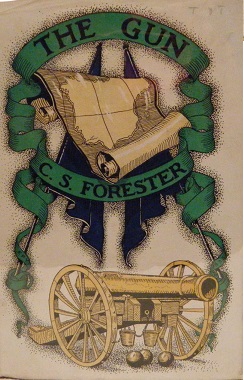
The Gun is a novel by C.S. Forester about an imaginary series of incidents involving a single eighteen-pounder cannon during the Peninsular War (1807–1814). The book was first published in 1933 and has as its background the brutal war of liberation of Spanish and Portuguese forces and their British allies against the occupying armies of Napoleonic France.
The Duchess and the Devil is the third episode of the British television series Hornblower. The episode first aired on 24 February 1999 on ITV. The television story is loosely based on the chapter "Hornblower, the Duchess, and the Devil" in C. S. Forester's 1950 novel Mr. Midshipman Hornblower.
Retribution is the sixth episode of the British film series Hornblower. It was released on 15 April 2001, the week after the fifth episode, Mutiny, of which it is a continuation. It is based on the 1952 book Lieutenant Hornblower by C.S. Forester.
Loyalty is the seventh film of the British TV film series Hornblower, based on the books by C. S. Forester, particularly Hornblower and the Hotspur. It was released on 5 January 2003, nearly four years after the first four films and nine months after the next two films.
Rear-Admiral Sir Henry Hart was a British naval officer and diplomat of the eighteenth and nineteenth centuries. After a brief stint in the East India Company he joined the Royal Navy in 1796 on Sir Edward Pellew's frigate HMS Indefatigable, participating in the action of 13 January 1797 before following Pellew to the ship of the line HMS Impetueux where he experienced a mutiny before taking part in a number of cutting out expeditions and the Ferrol Expedition. At the Peace of Amiens Hart transferred to the ship of the line HMS Foudroyant in the Mediterranean Sea where he was promoted to lieutenant and joined Sir John Gore's frigate HMS Medusa, in which he participated in the action of 5 October 1804 before sailing to India in 1805. There he was reunited with Pellew who made him his flag lieutenant and appointed him to a succession of acting commands, including to that of the frigate HMS Caroline in which he played an important role in the Raid on Griessie in 1807.
References
- 1 2 3 4 Sanford Sternlicht (1999). C. S. Forester and the Hornblower Saga. Syracuse University Press. p. 91. ISBN 9780815606215.